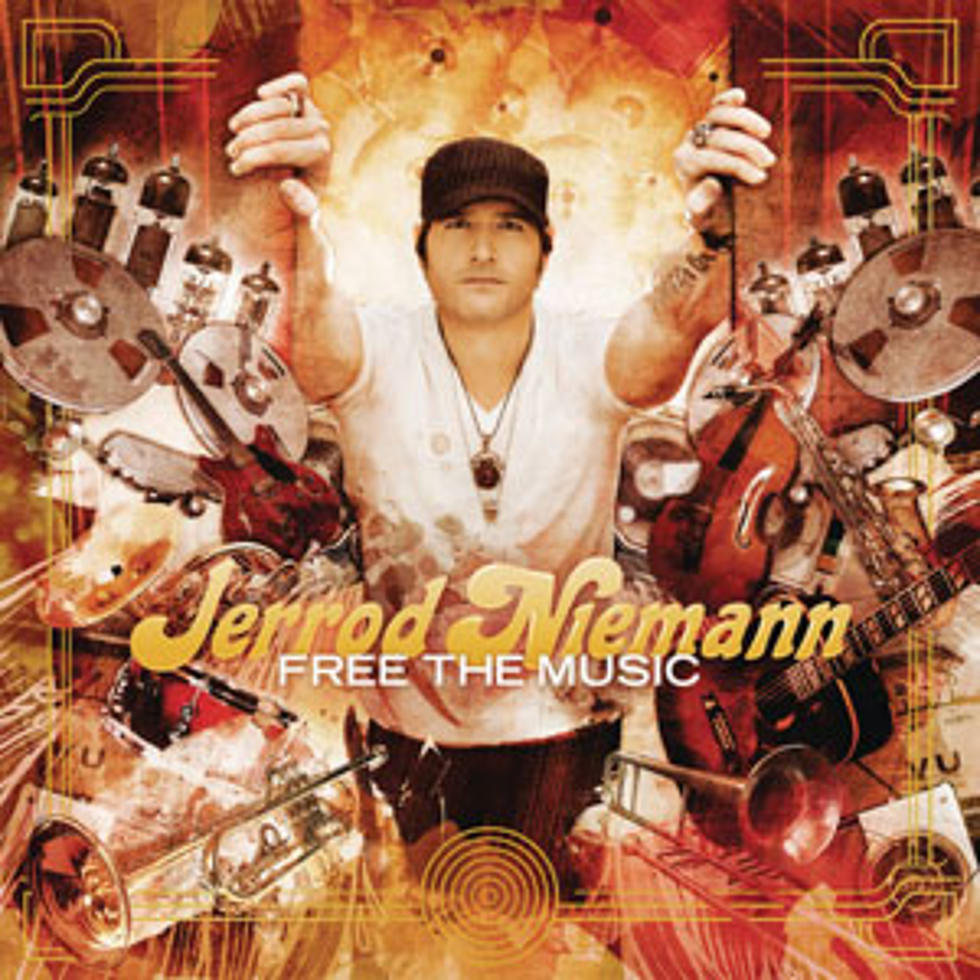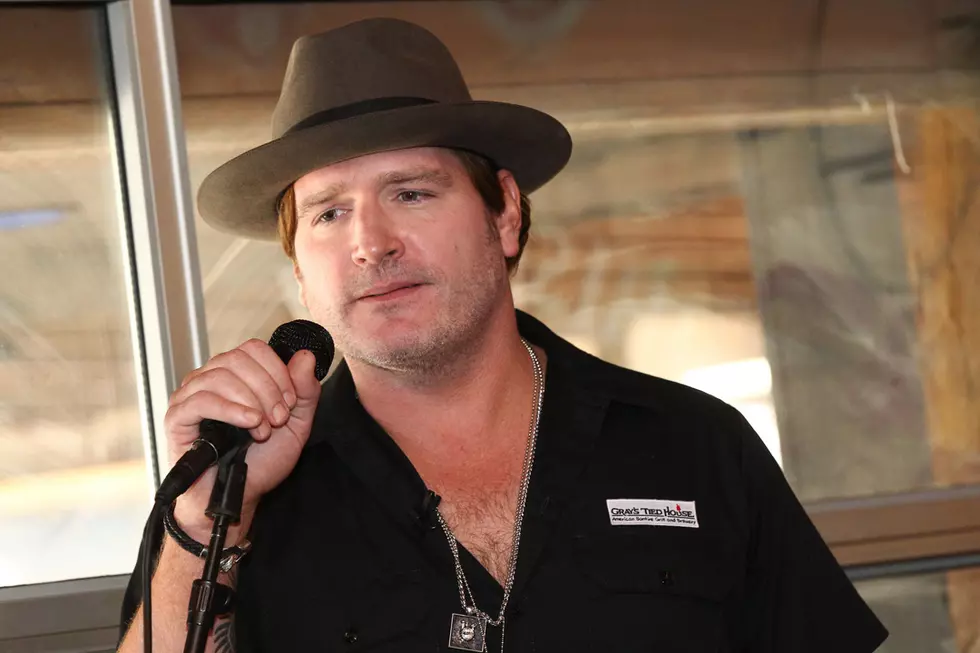
Jerrod Niemann, ‘Free the Music’ – Album Review
An album cover has never represented the music it protects better than Jerrod Niemann's 'Free the Music' artwork. The 'Shinin' on Me' singer's sophomore project is a busy collection of instruments and themes that take some effort to sort through and enjoy.
In one way, Niemann reined in his creativity on 'Free the Music.' Those who listened to 'Judge Jerrod and the Hung Jury' won't find the skits that interrupted the album's flow on this new album, which is in stores now. From the first beat, Niemann's dedication to stretching country music's borders is clear, although he always comes back to a traditional style after songs like the title track, which sounds written for the late '90s rock group Sublime.
Prepare yourself for a lot of horns and concert band instruments (is that a clarinet on 'Honky Tonk Fever'?). The tropical, yet melancholy, 'I'll Have to Kill the Pain' begins the trumpet and trombone assault. Here, it works. It's easy to imagine a warm breeze across your body as the horns cry out and Niemann sings of dulling the hurt of a breakup with copious amounts of booze.
"If I can't live without her / I'll have to kill the pain," he belts.
In other instances, clever arrangements might be too hip. 'Guessing Games' stands out as an odd duck, as does the introduction to 'Only God Could Love You More.' The latter turns into one of the best vocal efforts on 'Shinin' on Me.' It may be the most passionate expression on the album, followed closely by the slow melody of 'I'm All About You,' a song he sings with Colbie Caillat.
Early on, 'Whiskey Kinda Way' provides the most traditional moment. "They say the truth comes out when you're drinking / I've been drinking about her all day / Yes I still love her in a whiskey kinda of way," Niemann sings on a ballad that could have come from any generation. He doesn't take command of the song like one of country music's top vocalists might, but it's still a standout track.
At the end, it's not clear who Niemann is. He still seems like a man willing to take creative risks in an active search for his voice. Sometimes, these risks distract one from the beauty of his vulnerabilities; pain gets buried beneath breezy melodies or carefree arrangements. It may be simply a matter of finding the perfect producer to work with. After all, it's a tall task to write, perform and produce everything on your own.
More From Taste of Country

![Jerrod Niemann’s New Song ‘Tequila Kisses’ Mixes 50 Layers of Vocals [Exclusive Premiere]](http://townsquare.media/site/204/files/2020/08/jerrod-niemann-songs.jpg?w=980&q=75)




![Jerrod Niemann Honors Veterans Day With ‘Old Glory’ on ‘Fox & Friends’ [Watch]](http://townsquare.media/site/204/files/2018/11/Jerrod-Niemann-Old-Glory.jpg?w=980&q=75)


